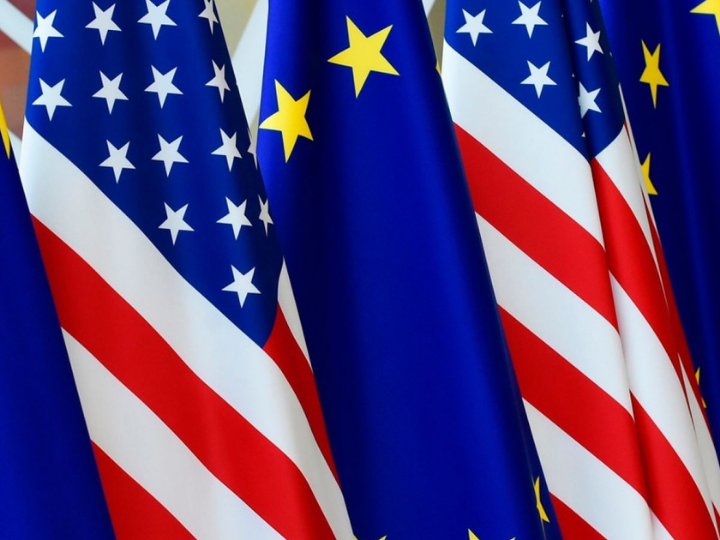by Daniel S. Hamilton*
What’s the quickest win for the Biden Administration and Europeans looking to turn a page after years of turmoil? Daniel S. Hamilton has the answer: settle the Boeing-Airbus dispute.
This sixteen-year fight between the United States and Europe over subsidies to their respective domestic aerospace industries is jeopardizing thousands of jobs on both sides of the Atlantic at a time when the pandemic is wreaking havoc on the airline industry.
Duelling tariffs on additional industries are penalizing communities that have little to do with the aerospace industry. It is distracting Washington and European capitals from China’s far larger subsidy challenge.
This transatlantic tiff centers on the World Trade Organization’s determination that the US, the EU and the UK all violated their trade commitments by subsidizing their domestic aerospace industries. Germany, France, Spain and the UK provided Airbus with financial subsidies for aircraft development. Boeing profited from tax breaks offered by the US state of Washington.
The WTO has authorized the US to retaliate by levying tariffs on up to $7.5 billion annually on EU goods imports, and has authorised the EU to charge duties of up to $4 billion annually on US goods imports. Each has imposed tariffs on aircraft as well as on a range of unrelated agricultural and industrial products. Those tariffs remain in place until a settlement is reached.
This transatlantic row is curious in a number of ways. The first is that both sides have already changed their procedures so that both are close to WTO compliance. Washington state withdrew the tax advantages it had offered to Boeing.
Airbus has modified the terms on two of eight instances of illegal launch aid it had received from various governments. Now that it has identified a solution, it should not be difficult to finalize new arrangements for the remaining cases. Instead of moving on, however, both sides are relitigating their treatment of past subsidies. The only winners here are the lawyers.
The second curiosity is that Airbus vs. Boeing has become synonymous with Europe vs. America, when in fact the two aerospace industries are deeply intertwined with each other, and each is a major investor and job-supplier on the other side of the Atlantic.
Boeing directly employs thousands of Europeans across countries, just as Airbus employs thousands of Americans in 38 locations in 16 US states. You will find European components on every Boeing aircraft. US-based suppliers and producers account for 40% of the components that make up an average Airbus jet.
Over the past three years, Boeing has spent over $28 billon on its European supply chain and Airbus has spent $50 billion on its US supply chain.
Maintaining these jobs and investments at a time of pandemic-induced recession and massive challenges to the aviation industry is of common interest – and yet instead of seeking solutions, both sides have expanded their target lists to inflict collateral damage on unrelated industries and agricultural producers in each economy.
The negative ripple effects of these actions are evident when one considers that the Airbus plant in Mobile, Alabama supplies aircraft to major US carriers such as Delta, JetBlue and Spirit.
Since various components for those US-built planes – fuselage sections, wing and wing assemblies – come from other Airbus facilities in Europe, US tariffs actually penalize these US airlines, who pass those costs on to US consumers through increased fares.
A third curiosity is that the United States and Europe are investing inordinate energy squabbling over subsidies and penalizing each other’s cheese, wine, and whiskey industries at a time when both face a far more significant subsidy challenge from China.
According to estimates, Beijing has subsidized the Commercial Aircraft Corporation of China, known as COMAC, with up to $72.1 billion – far more than the estimated $22 billion in European subsidies for Airbus and the estimated $23 billion in US subsidies for Boeing.
What’s more, Chinese subsidies for COMAC are continuing, even as the US and the EU have wound down subsidies for their own domestic industries.
Washington and Brussels have been quick to cry foul. Their credibility is questionable, however, when together they have been identified as subsidizers-in-chief. Until they resolve their own dispute, they are unlikely to have much leverage with Beijing.
A transatlantic deal does not necessarily mean a complete end to subsidies for a strategic industrial sector such as aerospace. What it does mean is agreement on what might constitute WTO-compliant support for such industries.
The United States and Europe used to be rule-makers when it came to trade disciplines. Today, both are certified rule-breakers. Tomorrow, they could become rule-takers – unless they again set the pace by defining what constitutes an “appropriate” subsidy in the aircraft industry, and establishing a US-EU-UK dispute settlement mechanism to regulate irregularities.
They could then leverage the strength of the transatlantic economy – the largest in the world – to address China’s own questionable activities.
The Boeing-Airbus dispute is a squabble we literally cannot afford. Our aerospace industries are deeply entwined with each other and with broad sectors of our respective economies.
We have a mutual interest in turning the page on the US-European relationship and eliminating the economic drag these transatlantic tariffs have caused. We cannot effectively challenge China’s use of industrial subsidies until we resolve our own industrial subsidy dispute.
Resolving Boeing-Airbus quickly, in a way that leverages our mutual strengths, would truly be an artful deal.
*Austrian Marshall Plan Foundation Distinguished Fellow and the director of the Global Europe programme at the Woodrow Wilson Center in Washington, DC
**first published in: www.euractiv.com




 By: N. Peter Kramer
By: N. Peter Kramer
